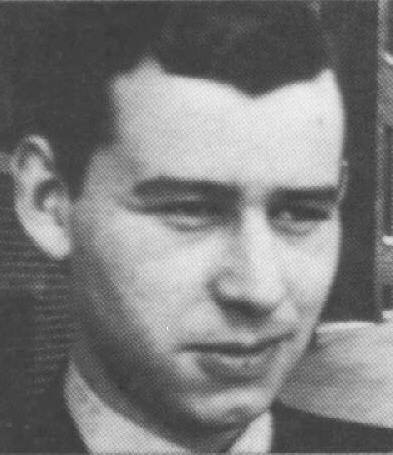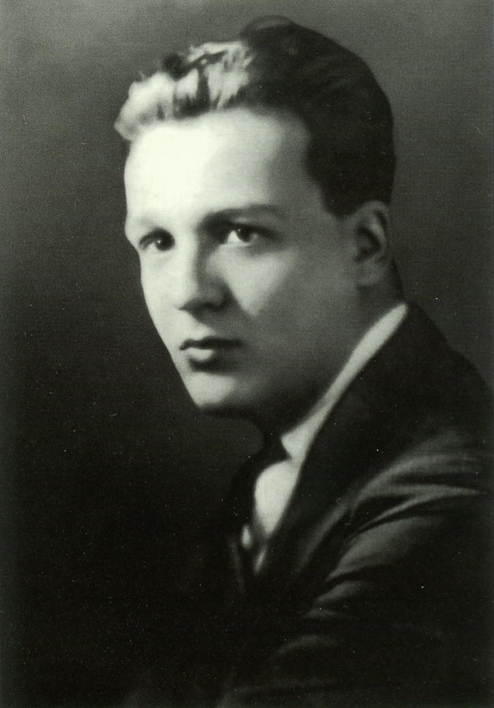Monday, March 15, 2010
Review: "A Saucer of Loneliness" by Theodore Sturgeon
First published in 1953, his thirteen-page short story packs a wallop every bit as powerful as other literary critiques of the degeneration of the spirit of democracy and personal freedom in America during the era of McCarthyism, such as the The Crucible by Arthur Miller, or Ray Bradbury's Fahrenheit 451, though it does it miniature. For all that, the concentration of it moves the emotions of the reader quite unexpectedly, and creates a whole new vision of the two principle characters at the end than one had of them at the beginning. Sturgeon's storytelling here has the fecund organic development that makes people forget where they are or that they have any other concerns than the characters and imagined world they are reading about right now, however fictive. The story begins in media res, but I will set the reader up by describing the past that has led up to the matter of crisis that sets the story in motion. The central protagonist is a psychologically-harrowed woman, who a few years ago, as a simple young woman, suffered a special grace, much like Joan of Arc did when that peasant girl began hearing the voices of angels at the old sacred tree near her village. But we are now in the Atomic Age, and our female heroine has gone out to Central Park in New York City to enjoy the very first touch of spring. She has walked into its inviting depths like many that day, and felt the elemental power of nature sweep away the hardness of city life, and as we later learn, the personal hardness of her family life. The grace she receives is the visitation of a small flying saucer, which out of the many visitors milling about the park, chooses her over whom to hover and shine. From it emerges a fascinating humming sound, which strikes fear and stubborn curiosity in the other people there, who form a thick circle some distance from her and the saucer. One man gives spontaneous utterance to his thought that the saucer appears like a halo over her head, and hearing this, the girl loses some of her fear; the notion occurs to her that perhaps this object does not mean her harm but rather, it may value her in some way. Soon the humming sound takes on a melodious climax, and then the saucer suddenly falls silent, loses its metallic glow, and falls to the ground, devoid of all animation. The young woman faints from the release of this intense experience coming to so abrupt an end. She wakens to find a policeman, a reporter and a crowd of fearful rumormongers barely held back by other policemen racing over to contain the situation. Her first instinct is to tell the policeman who protects her that the saucer spoke to her, and that she would like to share its message with him, but the policeman is too distracted by the mounting chaos of the crowd and the unreadable instigator of this commotion, now lying dull and arcanely listless on the newly sprouting grass. But then a bland well-dressed man enters the scene and takes over. He is with the Federal Bureau of Investigation, and he renders obsequious the formerly swaggering beat-cops, commandeering them to ward off the crowd while she is borne away on a stretcher to an awaiting ambulance. In the meantime, she is warned to say nothing of what the saucer communicated to her mind. Once at the hospital, the young girl is given her own private bedroom (something she has never enjoyed in the urban poverty of her life), and she is shown a care and personal consideration she has never before known. But however spiritually hungry she is to be valued as an individuala, she soon sees through to their ulterior motives. They question her exhaustively about every minute detail of her simple and brief existence. The questioning becomes interrogation, and it is all to get her to slip up and reveal what the the saucer said to her. For you see, she has decided in the interim that she will not tell anyone about the saucer's message. After the medical authorities have pronounced she has suffered no physical harm from the saucer and retains no psychological trauma, she is sent to court, and her own assigned defense attorney is not in sympathy with her right and will to remain silent, to her privacy. She is jailed for contempt of court, and the interrogations continue, but no legal charge will hold her much longer, and she is finally released. Yet the world of freedom she returns to has utterly changed from what she last knew now months ago. Her alcoholic mother will have nothing to do with her, feeling her daughter has brought her ill fame in the public eye for possibly consorting with a foreign power. So she sets off alone, but the wild publicization of her in the newspapers, radio and television have made her notorious as a suspected mole whose secret knowledge might harm the security of the country. She must go from job to job, hoping not to be recognized too soon. Frequently she meets nice-seeming men who would court her, but they always end up showing their true cards by asking her about what the saucer told her. Always when she is on such dates, she and her date are followed. These men are not interested in her but the potential power she keeps locked up in her mind, and some of these pretend courters are agents of foreign powers as well as being agents of her own government, just as the men tailing them are sometimes fifth columnists and sometimes legitimate men of national security. To escape the madness has become her life, wherein her spiritually malnourished society's irrational fears , lust for power and craving for scandal have all been witheringly focused upon her, she moves to a sparsely populated coast, where she sets up a house-cleaning business, enabling her to work alone unmolested. She takes up reading as she never had before, but it is no substitute for a real life with loving people in it to share it with her. She find another temporary solution (though a more lasting one) to preserve her sanity and stave off her compounded loneliness, for even before she had encountered the little saucer, she had been lonely the way many unloved children are, even as they have almost reached full adulthood. She begins writing messages and sending them out in bottles, hoping that this pure and anonymous form of communication will reach someone real. She imagines how such messages from her might prove nurturing to souls as lonely as herself, and so she entertains a kind of vicarious companionship with unknown others like her across the world, who also live lonely by the vast ocean sea. But in the end, the loneliness is unbearable, and the companionable sea has now become a lure to her for real oblivion. And yet, her messages have reached someone, a person intelligent enough to study to ocean currents and prevailing winds, and thereby to discover their point of origin. Moreover, this person has sensed in her messages that she must be found before it is too late. I leave it to the reader to discover her fate and the nature of this person who seeks her, not to mention the very surprising thing the little saucer told her. I encountered this story in an original collection called E Pluribus Unicorn, published in 1953 by Ballantine books; it was printed in a 35-cent paperback I found in my grandfather's attic library collection after he died. It is out-of-print now, but it may more be more readily and affordably obtained (having been reprinted numerous times through the decades in this form) than its most recent publication, which was an expensive, quality-production small-press effort that is now also out-of-print: The Complete Stories of Theodore Sturgeon, Volume VII. Published by North Atlantic Books. Copyright 2000.
Subscribe to:
Post Comments (Atom)



























Thank you for this. Not just for your heartfelt homage to a well-loved story by a giant in the fields of fantasy and science fiction. Also for the clarion call to bring him back, which appears nearby in the left margin. Writers like Sturgeon had so much to offer, and did so much for the previous generation, that it would be a shame for future generations to be denied their amazing gifts. Gifts like "A Saucer of Loneliness." The way you feel about Sturgeon is how I feel about Zelazny and Vance. But I love Stanley G. Weinbaum and, possibly even more, Alfie Bester. Sturgeon, though, he was special, a true poet who should never ever be forgotten. Again, thank you for what you're doing on this blog and for this page in particular.
ReplyDeleteThis is quite simply a masterpiece.
ReplyDeleteGood articles, Have you heard of Mr Benjamin, Email: lfdsloans@outlook.com --WhatsApp Contact:+1-9893943740-- who work with funding service they grant me loan of $95,000.00 to launch my business and I have been paying them annually for two years now and I still have 2 years left although I enjoy working with them because they are genuine Loan lender who can give you any kind of loan.
ReplyDelete